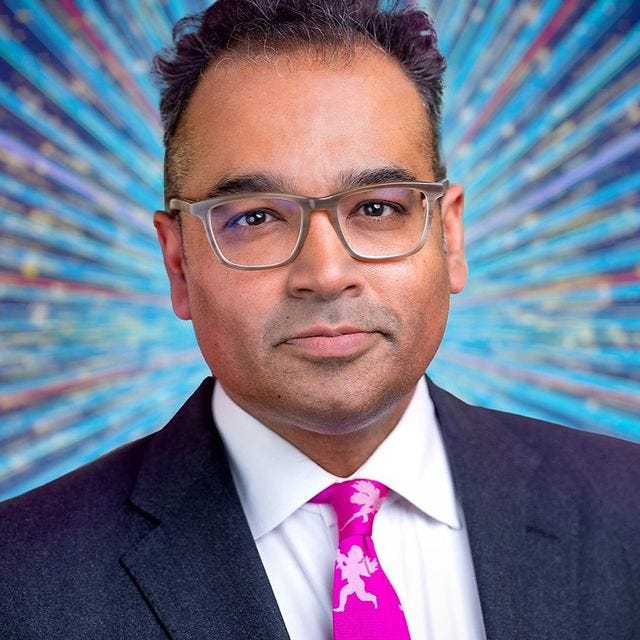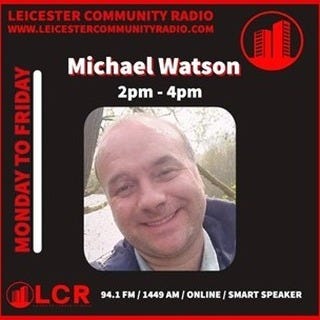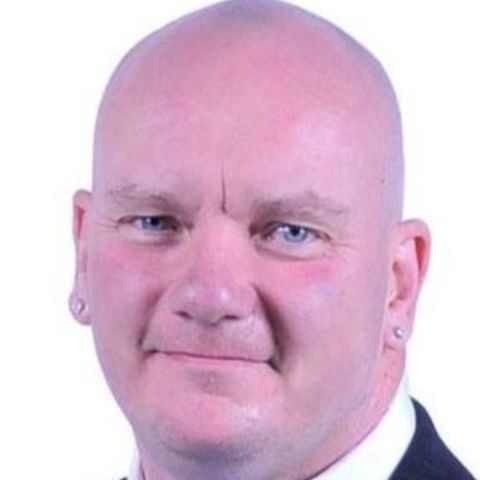Chapter 29: Diary of a Disabled PhD Student
Posts 280-289 - Reflections on doing interviews differently and innovation- sharing is caring continued
Context: These posts are found on my Facebook Diary of a Disabled PhD Student
I collated posts from my Facebook Diary of a Disabled PhD Student page into a Word version. A selection of these Facebook posts are in the Word version of my PhD thesis. Here, on this ‘The Diary of a Disabled PhD Student’ part of my Substack website, I collate all my Facebook posts so you can see in chronological order from when I started the Diary on 20.4.2023. Each Chapter is 9 Diary Facebook posts in chronological order. I have given the chapter a theme underneath the heading title above. There is a photo at the end of each post related to the discussion within that post. My Substack also hosts 1) The Disabled Peoples Project and Disabled Actors Project, which show biographies of different people with disabilities on different social media platforms (I am the creator, editor and contributor) and 2) The Creative Writing Hub. I reference these aspects within my Diary along with my Medium articles and Talks during my PhD. My full research website where these components can be found is www.linktr.ee/disabledphdstudent. My Diary posts reflect on different aspects of my research website together with reflecting on daily life from having disabilities and chronic illness, my experiences during a unique and unusual period of my life doing a PhD, along with other snippets of my life not related to either! I also discuss various digital media creators, journalism and TV sources within posts along with interviews done during my PhD period.
N.B I say ‘unique and unusual’ because only 2% of the UK population have a PhD*, with little research surrounding the intersectionality of those who have completed doctorates. However, indicators* suggest few disabled, working-class people complete a PhD out of them 2%. When I graduate with my PhD will mark my 20th anniversary of being a mature student at the same university. As a working-class middle-aged woman with many disabilities and chronic health conditions from a family of intergenerational struggles, I explored during my Diary of a Disabled PhD Student how the heck I got to this point. With the hope to break down the ‘Glass-Ceiling’ for others who face struggles wanting to pursue their dreams, whatever those dreams may be.
*current figures only record up to age 64!
Chapter 29 below contains Posts 280-289 (15.11.23-26.11.23) from my Diary of a Disabled PhD Student.
Chapter 28 Posts 280-289:
Post 280- Rose Atkinson, who has autism and ADHD, kept diaries throughout her life, reflects on the impact and connection of a life working 0-hour contracts
Post 281- innovation doesn't necessarily mean perfection - means bringing something new to the table to help solve a problem - 15.11.23
Post 282- Disabled Peoples Project Mindfulness- 19.11.2023
I feel better after doing two biographies for the Disabled People Project today. I've been caught up doing paperwork for the project for the PhD thesis for the last couple of weeks. Today brought me back to what is important with the PhD research- people with disabilities who have made huge contributions that can easily be forgotten in the academic landscape.
If you want to see these two biographies, which I reflect on more in the PhD Thesis, here are the links:
Number 107 Krishnan Guru-Murthy 19.11.2023
Instagram:
TikTok:
versions
YouTube:
Podcast:
Number 108 Adam Thomas 19.11.2023
Instagram:
TikTok: biographycredit
.
YouTube:
Podcast:
Photo credits BBC, which are on the biographies along with information about their work and conditions.
Post 283- Michael Watson Leicester Community Radio Biography for the Disabled Peoples Project (DPP) - 20.11.2023
It gave me great pleasure to interview Michael Watson, a long-standing Community Radio presenter, during my PhD Research, which I made into a biography for the Disabled People's Project DPP (with ethics and Michaels Consent, of course!). If you would like to see Michael's Biography on the platforms which I reflect on in my PhD thesis, here are the links:
Facebook:
Instagram:
TikTok:
.
YouTube:
Podcast:
Photo credit to Michael Watson and Leicester Community Radio
Post 284- Screw loose - 21.11.23
The Screw comes off somewhere from the bed trolley I use to enable me to write my thesis…… the Trolley I brought from Amazon because of the previous posts about DSA supplying a tray that gave pressure sores! Oh, and this mouse. I got it because DSA said they couldn't provide a mouse, and I struggled with manual dexterity. Oh well, let's hope the trolly lasts until I've submitted PhD thesis; otherwise, I will have a screw loose.
The photo below: large silver screw on the table side of the diary used as a mouse pad with a computer mouse.
Post 285- Neil Grant - 23.11.2023
It was a great pleasure to interview Neil Grant, an actor and entertainer with disabilities, as part of my PhD research. Neil wanted an online biography and podcast episode for the Disabled Actors Project. He repeated it on the Disabled Peoples Project, which we could do within the parameters of the research ethics approval. Quite interestingly, Neil said in the special podcast episode, 'Getting acting roles wasn't a problem when having Epilepsy, but soon as I started using a wheelchair caused problems and haven't been offered any roles now'. This was a finding from the Disabled Actors Part of the research that there were more actors with hidden disabilities than anticipated. However, getting roles proved difficult for actors with more visual mobility aids or disability. This can be a range of reasons, from aspects not written within the storyline to perceived adaptions required on set. Also, actors with several disabilities can mean numerous medical treatments, and financial ambiguity along with the casual relationship with contracts can represent a further economic disadvantage of independence after filming.
You can view Neil's Biography for the Disabled Actors Project DAP here (Number 14, 22.5.2023):
Facebook: https://m.facebook.com/story.php?story_fbid=168808206155435&id=100090787699634
Instagram:
TikTok:
.
YouTube:
Podcast: https://spotifyanchor-web.app.link/e/PtUk3zAu3Db
Biography repeated on the Disabled Peoples Project here (Number 100, 1.10.2023):
Instagram:
TikTok: following Newil Grant’s
can be
YouTube:
Podcast:
You can find the special podcast interview episode with Neil here (Number 99 DPP, 20.9.2023):
Link for Neil's Podcast interview episode: https://spotifyanchor-web.app.link/e/bk5zGjIonDb
Link to Neil's Podcast Interview episode on YouTube video version:
Link to Neil's Podcast interview episode written summary Facebook version: https://m.facebook.com/story.php?story_fbid=248849721484616&id=100090787699634
Neil Grant (right) provided and permitted sharing the photo below (left) from the podcast episode.
N.B. podcast episode was before Kitty Castledine was cast to rekindle character Max Branning's daughter Penny Branning in EastEnders, who uses a wheelchair with discussions surrounding Neil's dream to be in Eastenders during the podcast.
Post 286- Sarah Spoor- 23.11.2023
I was pleased to interview Sarah Spoor earlier this year as part of a Disability Hate Crime Book Chapter. As the university ethics for this PhD research project are only to discuss how people with disabilities (or close carers) use the media as part of their work, Sarah's use of Twitter is focused on here, within the ethics perimeters and Sarah's consent. A further exploration of how Structural Disability Hate has impacted Sarah and her family will be released within the Disability Hate Crime Book Chapter, along with two other examples. One is who I've previously posted about Kirsty, who keeps a Facebook Page to document her son Reece's cancer journey, including following his death and hopes to set up a charity for single parents whose children are going through Cancer. I am dearly grateful for all the interviewees during my PhD research who have selflessly given up their time to help guide this research and help others.
Sarah Spoor's Twitter bio describes her as a ''Full-time career, part-time advocate for justice, & budding activist- standing up for the rights of disabled, carers, & the less able. Articulate, fearless campaigner''.
Through our interview, correspondence, and Twitter page, I found Sarah is true about her bio. Sarah's constant fearless nature and tenacity help many others on her Twitter Page. Even at the detriment of her health, she continues to campaign for social justice and others' health and well-being, a similar theme in my interviews, such as Kirsty, who uses Facebook and research. Different digital media platforms, such as Sarah's Twitter and Kirsty's Facebook page, are used in all examples to help make positive societal developments for treating disabled and chronically ill people through lived experience.
Link to Sarah's Twitter Page:
https://twitter.com/SarahSpoorUK
Post 287- Reece's journey Ewings sarcoma childhood cancer - 26.11.2023
Cancer gets little attention in Disability research outside of the medical discipline. However, Cancer is protected instantly under U.K. Disability legislation. It was a pleasure during my PhD research to interview Kirsty, Reece's mum. It was the Second Anniversary of Reece's death on November 21st, 2023, from Ewing Sarcoma Cancer. Kirsty raises significant awareness by considering the whole picture of Cancer.
Despite every day being difficult with the loss of her only son, Kirsty continues her plight to help others and works hard to provide Reece's siblings with a positive future.
Throughout the journey, Kirsty continues Reece's journey to Ewings Sarcoma's childhood cancer page to share Reece's story and help other families going through similar experiences. After finding such gaps and difficulties facing single-parent households, Kirsty hopes to set up a charity for single parents with children who have faced Cancer.
Some interviews will be released in an up-and-coming chapter of the Disability Hate Crime book titled 'Structural Disability Hate'. But for the PhD Thesis part, the 'Sharing is Caring' concept is highlighted with Kirsty's use of Digital Media, showing the power and education of lived experience to help others.
Reece's journey Ewings sarcoma childhood cancer
https://www.facebook.com/profile.php?id=100075871367736
Cancer protected under Disability legislation:
https://civilservice.blog.gov.uk/.../did-you-know-that.../
Educational rights if a child is diagnosed with Cancer but limited research if this happens in reality:
https://www.younglivesvscancer.org.uk/.../my-childs.../
RIP Reece - Forever 15 7.2.2006-21.11.2021
Post 288- Sue Townsend, Winnie, and the community connection - 26.11.23
During my PhD research, I explored why Leicester writer Sue Townsend is inspirational. Was it just her disabilities and health conditions that inspired others with disabilities to write? Or was it something else?
Sue Townsend knew my nana, Winnie, before fame and when Sue lived as a single parent on Eyres Monsell estate in Leicester through the 1970s. Sue worked as a youth worker in the nearby Saffron Lane estate, commonly known as 'The Saff'.
Sue wrote a special obituary for the Leicester Mercury when Winnie died in January 2013, a year before Sue's death. My Nan would appear frequently in the Mercury over the years, starting innovative community and family initiatives and founding a school's parent association, which became active. So, it was a lovely tribute to Sue and The Leicester Mercury journalist Adam Wakelin, who has known Winnie for several years. Winnie always said she wasn't doing it- it was the community. Mothers in the area started it and became positively infectious with children, fathers, company philanthropists and local media, which helped publicise and improve the experiences for many children in 'The Saff'.
Money was tight within most families in that area, yet they gave so much to others. I made a joke when being interviewed in a podcast last year with a family anecdote when they sold the T.V. on' tick' to go on a day to Skegness, and they never forgot that wonderful day and such an educational experience for the children, which helped their health and well-being. When interviewing Paul, one of Winnie's children, during my PhD research, he showed me these (photos below), which he also placed on the wall during Winnie's wake in 2013. These are food receipt books from 1974, which Winnie kept. We see how much food was 'on tick' (borrowed from the shop owner like a loan). We see how much balancing the home books was done and how sacrifice was made to feed the family. She needs more money to buy basic bread and milk despite her husband working long hours as a lorry driver and providing bulk items to feed a large family. Other classes are beginning to realise what it's like with the cost-of-living crisis. However, these working-class feminists always had to survive through hardships. They somehow managed to make sure their children thrived despite these hardships. Through their survival, they showed strength beyond words. They invented the 'sharing is caring' principle that's been translated into the modern social media world.
Paul went into a supermarket to work out the modern-day cost of the food items listed in this 1974 book, which created interest in the shop. The rest is history. Despite our society's progress, we are making basic food items difficult to buy for the health and well-being of our children's future.
More about Sue Townsend, Winnie, and community connections are discussed in my PhD thesis, including how the women in that area made significant contributions. It is all this intersectionality, not just disability, which has been so inspirational for my PhD.


























